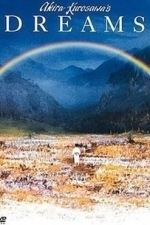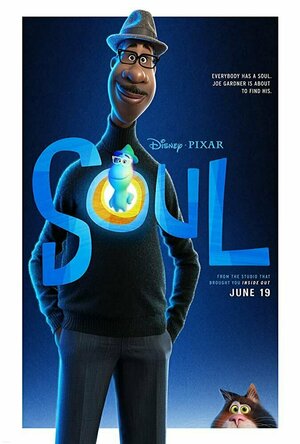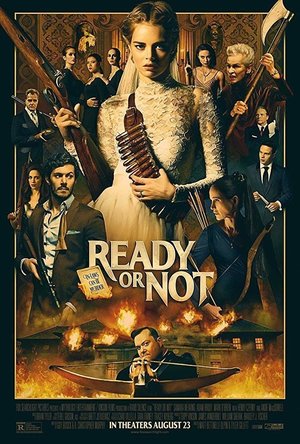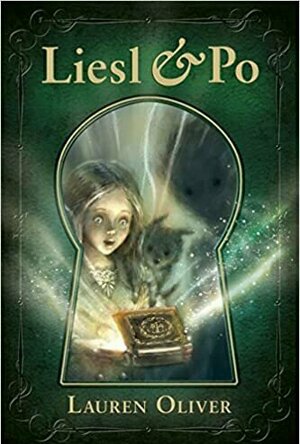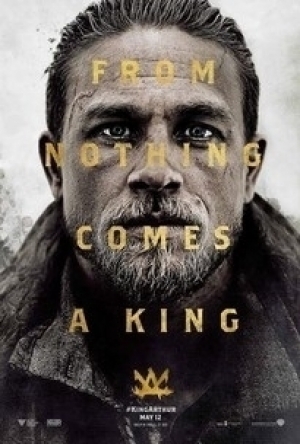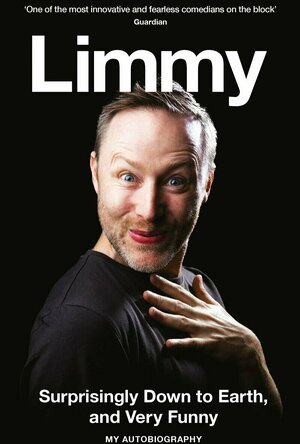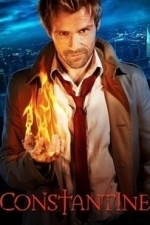Search
Search results
Cate Le Bon recommended Histoire de Melody Nelson by Serge Gainsbourg in Music (curated)
Jeff Nichols recommended Dreams (1990) in Movies (curated)
LeftSideCut (3776 KP) rated Soul (2020) in Movies
Jan 1, 2021
The second Pixar effort of 2020 is nothing short of excellent. Soul is a wonderful experience from start to finish, dealing with abstract ideas in a touching way, and boasting some of the finest animation out there.
When compared to older Pixar efforts, it's easy to see just how far this sort of thing has come. Soul manages to look photo realistic, despite the cartoony designs of the human characters. It has matured in other ways too - where these films used to be kid friendly adventures with a message lurking within, that's not quite the case anymore. The themes in Soul are very much for an older audience, and sure, there are talking cats and colourful visuals in The Great Before to keep younger viewers involved, but the narrative here focuses on how one can feel like their life is wasted sometimes, how it's easy to feel lost in such a big world, and the acceptance of death. With heavy subject matters at the forefront, the frequently heart-warming and funny screenplay results in an story that is expertly crafted to hit all the right emotional buttons, whilst still being fun, and full of awesome jazz.
Director Pete Docter is of course the man behind Up, Inside Out and Monsters Inc. so it's no surprise that his fourth Pixar feature is one that can stand tall next to those greats. A fantastic voice cast including Jamie Foxx, Tina Fey, Richard Ayoade, Anglea Bassett, Phylicia Rashad, and Rachel House among others, adds the remaining ingredients to ensure that Soul is another magnificent string in Pixar's bow, and is an essential watch.
When compared to older Pixar efforts, it's easy to see just how far this sort of thing has come. Soul manages to look photo realistic, despite the cartoony designs of the human characters. It has matured in other ways too - where these films used to be kid friendly adventures with a message lurking within, that's not quite the case anymore. The themes in Soul are very much for an older audience, and sure, there are talking cats and colourful visuals in The Great Before to keep younger viewers involved, but the narrative here focuses on how one can feel like their life is wasted sometimes, how it's easy to feel lost in such a big world, and the acceptance of death. With heavy subject matters at the forefront, the frequently heart-warming and funny screenplay results in an story that is expertly crafted to hit all the right emotional buttons, whilst still being fun, and full of awesome jazz.
Director Pete Docter is of course the man behind Up, Inside Out and Monsters Inc. so it's no surprise that his fourth Pixar feature is one that can stand tall next to those greats. A fantastic voice cast including Jamie Foxx, Tina Fey, Richard Ayoade, Anglea Bassett, Phylicia Rashad, and Rachel House among others, adds the remaining ingredients to ensure that Soul is another magnificent string in Pixar's bow, and is an essential watch.
Phillip McSween (751 KP) rated Ready or Not (2019) in Movies
Jan 6, 2021
Great From Beginning to End
A new bride agrees to an innocent game with her in-laws on her wedding night only to find out the game involves her murder.
Acting: 10
Beginning: 10
Characters: 10
Cinematography/Visuals: 10The film has a dark, yet colorful cast that works on both engaging and eery levels. Part comedy, part horror directors Matt Bettinelli-Olpin and Tyler Gillett masterfully capture both without either looking out of place. I was very impressed with the attention to detail.
Conflict: 10
Entertainment Value: 10It’s hard to miss when you combine action, comedy, and horror into a solid movie. Every moment of this movie is engaging. it’s a ride you’re excited to be a part of as you wade through what the heck is going to happen next. A fun, wild ride.
Memorability: 9
Ready Or Not will definitely stand in the memory long after being watched. Again, it checks the boxes in the three different categories. However, it doesn’t quite master any of them hence the docked point.
Pace: 10
Great start, then the tension continues to mount from there. it never lets its foot off the gas save for a few short breaths. It shoots out of a cannon then moves forward at a breakneck pace.
Plot: 10
Resolution: 10
One of my favorite parts of the entire story. Mums the word here.
Overall: 99
In the near future, I’m going to do a piece on “Movies I Can Watch Repeatedly and Not Get Bored”. Ready Or Not will probably make that list. It does so many things right. Definitely a movie to remember.
Acting: 10
Beginning: 10
Characters: 10
Cinematography/Visuals: 10The film has a dark, yet colorful cast that works on both engaging and eery levels. Part comedy, part horror directors Matt Bettinelli-Olpin and Tyler Gillett masterfully capture both without either looking out of place. I was very impressed with the attention to detail.
Conflict: 10
Entertainment Value: 10It’s hard to miss when you combine action, comedy, and horror into a solid movie. Every moment of this movie is engaging. it’s a ride you’re excited to be a part of as you wade through what the heck is going to happen next. A fun, wild ride.
Memorability: 9
Ready Or Not will definitely stand in the memory long after being watched. Again, it checks the boxes in the three different categories. However, it doesn’t quite master any of them hence the docked point.
Pace: 10
Great start, then the tension continues to mount from there. it never lets its foot off the gas save for a few short breaths. It shoots out of a cannon then moves forward at a breakneck pace.
Plot: 10
Resolution: 10
One of my favorite parts of the entire story. Mums the word here.
Overall: 99
In the near future, I’m going to do a piece on “Movies I Can Watch Repeatedly and Not Get Bored”. Ready Or Not will probably make that list. It does so many things right. Definitely a movie to remember.
Adam Silvera recommended Liesl & Po in Books (curated)
LoganCrews (2861 KP) rated King Arthur: Legend Of The Sword (2017) in Movies
Sep 21, 2020
Pick your poison: 𝘛𝘩𝘦 𝘓𝘢𝘴𝘵 𝘞𝘪𝘵𝘤𝘩 𝘏𝘶𝘯𝘵𝘦𝘳 meets 𝘖𝘶𝘵𝘭𝘢𝘸 𝘒𝘪𝘯𝘨, 300: 𝘙𝘪𝘴𝘦 𝘰𝘧 𝘢𝘯 𝘌𝘮𝘱𝘪𝘳𝘦 meets the 𝘈𝘴𝘴𝘢𝘴𝘴𝘪𝘯'𝘴 𝘊𝘳𝘦𝘦𝘥 movie, or 𝘎𝘰𝘥𝘴 𝘰𝘧 𝘌𝘨𝘺𝘱𝘵 meets 𝘙𝘰𝘣𝘪𝘯 𝘏𝘰𝘰𝘥 (2018) - you decide. Either way they all eventually mesh with 𝘙𝘰𝘤𝘬𝘯𝘳𝘰𝘭𝘭𝘢, too. As stupid and trashy as it needs to be, legit some of the dumbest stuff imaginable lmfao. Pure junky spectacle with jaw-dropping visuals and neurotic editing, felt like somebody laced my drink with crack while I was watching it. God-tier Law performance right here, chews the scenery so much that legend has it his jaw dislocated. Unmistakably Ritchie in areas but unfortunately often sacrifices auteur personality for genre convention (take a shot every time you see a side character you'll remember and you'll end up totally sober - and that stupid joke about the roundtable at the end was puh-thetic). To say this frankly disgraceful excuse of a screenplay is the exact same movie as all of these other edgy historical action-remakes for high school boys would be a severe understatement. Glad it didn't turn too much into jokey blockbuster corn or yet another over-emphasized failed origin story (most of this is wisely cut to montages with like nu-gothic heavy breathing scores lol). In short, the type of movie I'm *shocked* wasn't released in 2003/2004. I feel bad for those who love King Arthur and then saw this movie - but Jude Law cuts off a guy's ear then whispers into it and Charlie Hunnam full-on does the 𝘛𝘸𝘪𝘭𝘪𝘨𝘩𝘵: 𝘕𝘦𝘸 𝘔𝘰𝘰𝘯 angst-run through the woods. So of course I, for one, enjoyed the hell out of it.
Ross (3284 KP) rated Surprisingly Down to Earth, and Very Funny in Books
Oct 27, 2020
Funny but at times harrowing auto-biography
I wouldn't say I was a huge fan of Limmy's. I've seen a few of his sketches on youtube and have heard him interviewed on a few podcasts. He seems quite strange and a bit of an odd character. I have read his books of short stories and found them to be brilliantly well-written and original.
His auto-biography starts brilliantly, giving a great insight into the childhood that shaped the comedian. There are funny stories of growing up isolated and playing strange games with strange friends. This gets darker as Limmy ages, as he finds himself looking for danger and things to make him feel alive. This inevitably leads to trouble with the police, and on to drink and drugs and more police trouble.
He seems to have always been looking to try and find somewhere to fit in, a niche in the world where he can be himself and be otherwise left alone, though he is his own worst enemy along the way. Battles with depression, suicide and social issues hold him back at almost every stage. He finally finds his niche when he discovers flash programming. This gives him an avenue for his creativity and silliness, and leads to his genius being discovered, eventually leading to a successful podcast and TV shows - though even those weren't plain sailing.
This is the charming, though at times harrowing, story of a man with so many ideas in his head, but so many issues holding him back, and the battle to overcome demons to do what he wants to do, and to do it his way.
His auto-biography starts brilliantly, giving a great insight into the childhood that shaped the comedian. There are funny stories of growing up isolated and playing strange games with strange friends. This gets darker as Limmy ages, as he finds himself looking for danger and things to make him feel alive. This inevitably leads to trouble with the police, and on to drink and drugs and more police trouble.
He seems to have always been looking to try and find somewhere to fit in, a niche in the world where he can be himself and be otherwise left alone, though he is his own worst enemy along the way. Battles with depression, suicide and social issues hold him back at almost every stage. He finally finds his niche when he discovers flash programming. This gives him an avenue for his creativity and silliness, and leads to his genius being discovered, eventually leading to a successful podcast and TV shows - though even those weren't plain sailing.
This is the charming, though at times harrowing, story of a man with so many ideas in his head, but so many issues holding him back, and the battle to overcome demons to do what he wants to do, and to do it his way.

Lenny - funny random faces generator and stickers
Utilities and Social Networking
App
Tired of your job? You argue too much with your wife/husband/dog/self? School is so boring you...

Wreck-It Ralph Storybook Deluxe
Entertainment and Book
App
• Relive the incredible story of the Disney animated film Wreck-It Ralph! • Create and Race your...
Lee KM Pallatina (951 KP) rated Constantine - Season 1 in TV
Apr 15, 2020 (Updated Apr 15, 2020)
It says master, does it? I should really change that to petty dabbler
Contains spoilers, click to show
My name is John Constantine. I am the one who steps on the shadows, all trench coat and arrogance. I'll drive your demons away, kick 'em in the bollocks, and spit on them when they're down, leaving only a nod, a wink and a wisecrack
Demon hunter and master of the occult John Constantine decided to cease fighting evil since his soul now belonged to the netherworld.
when demons target the daughter of one of his closest friends, he reluctantly rejoins the battle.
discovering Liv (the friends daughter) has second sight, an ability to see other worlds and predict supernatural occurrences, a power that makes her a threat to the new evil, She and Constantine take their combined skills on the road, travelling the country finding demons and send them back to hell.
Matt Ryan stars as john Constantine "master of the dark art's" who after failing to save an old friends young daughter from a powerful demon that dragged her to Hell years prior, leaves that life behind...until now.
This show was short lived, it was eventually accompanied by a animated mini series & an animated movie.
The character was voiced by Matt Ryan of course allowing that version of the character to continue, also being a main character in the DCAU movie justice league dark.
The character also appeared in the CWs arrowverse & is currently a mainstay in CWs legends of tomorrow, Ryan is casting perfection and is a fan favourite.
Demon hunter and master of the occult John Constantine decided to cease fighting evil since his soul now belonged to the netherworld.
when demons target the daughter of one of his closest friends, he reluctantly rejoins the battle.
discovering Liv (the friends daughter) has second sight, an ability to see other worlds and predict supernatural occurrences, a power that makes her a threat to the new evil, She and Constantine take their combined skills on the road, travelling the country finding demons and send them back to hell.
Matt Ryan stars as john Constantine "master of the dark art's" who after failing to save an old friends young daughter from a powerful demon that dragged her to Hell years prior, leaves that life behind...until now.
This show was short lived, it was eventually accompanied by a animated mini series & an animated movie.
The character was voiced by Matt Ryan of course allowing that version of the character to continue, also being a main character in the DCAU movie justice league dark.
The character also appeared in the CWs arrowverse & is currently a mainstay in CWs legends of tomorrow, Ryan is casting perfection and is a fan favourite.

